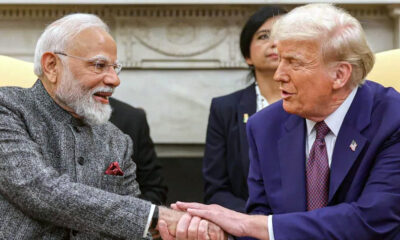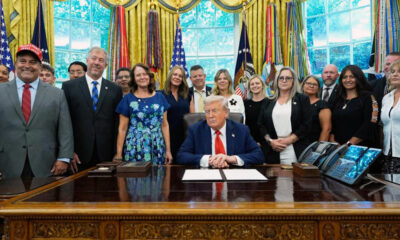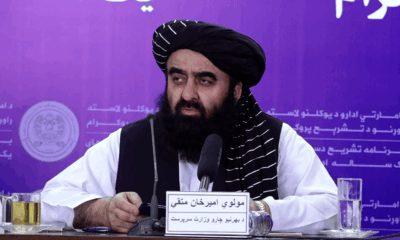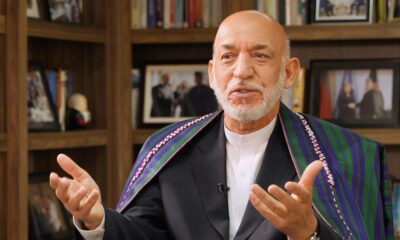Latest News
US Secretary of State’s press statement on Afghanistan political impasse
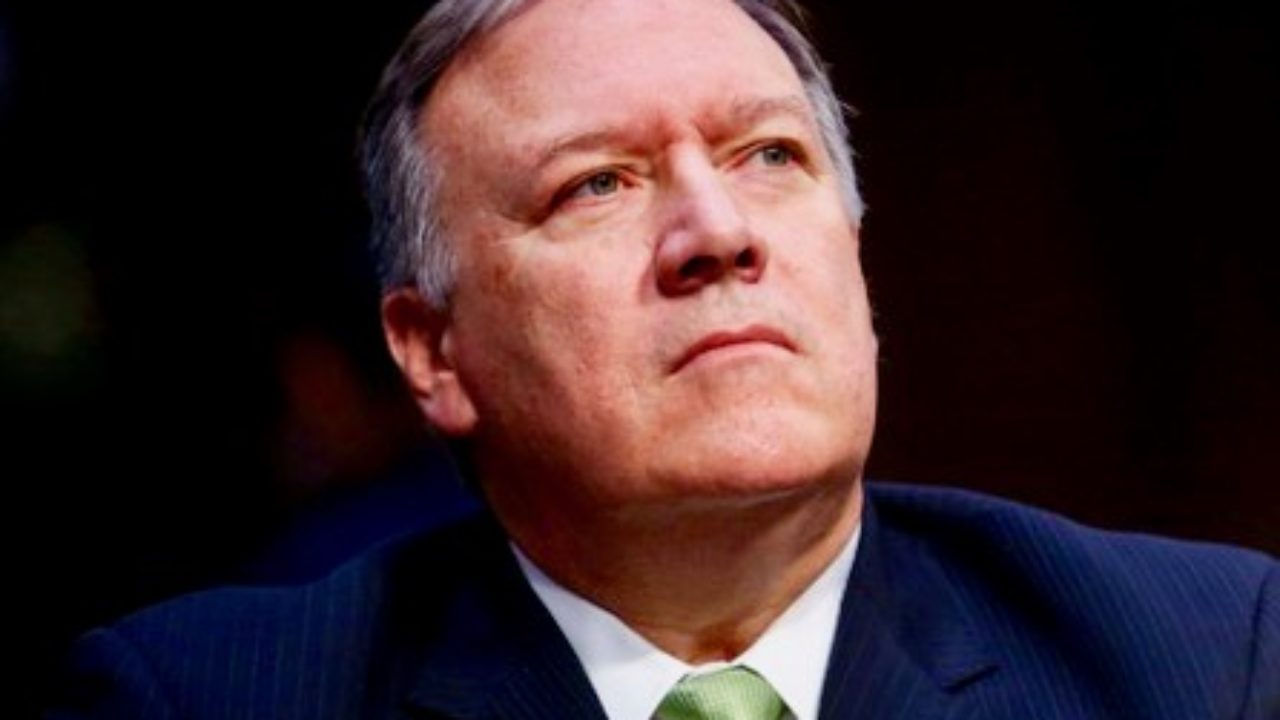
 The United States Secretary of State expressed in a press statement, 23rd March 2020, that the US deeply regretted that Afghan President Ashraf Ghani and former Chief Executive Abdullah Abdullah had informed Secretary Pompeo that they had been unable to agree on an inclusive government.
The United States Secretary of State expressed in a press statement, 23rd March 2020, that the US deeply regretted that Afghan President Ashraf Ghani and former Chief Executive Abdullah Abdullah had informed Secretary Pompeo that they had been unable to agree on an inclusive government.
The statement in its opening note says, “The United States is proud of our partnership with the Islamic Republic of Afghanistan and the Afghan people, and admires what Afghanistan has achieved since 2001. We have forged a deep bond, especially with Afghan security forces, through shared sacrifice in responding to threats to international peace and security since 2001.”
The statement underlines that the national priority the United States attaches to help bring about a political settlement to forty years of the devastating war, Secretary Pompeo came to Kabul Monday with an urgent message and spoke to the nation’s leaders to impress upon them the need to compromise for the sake of the Afghan people.
“The United States deeply regrets that Afghan President Ashraf Ghani and former Chief Executive Abdullah Abdullah have informed Secretary Pompeo that they have been unable to agree on an inclusive government that can meet the challenges of governance, peace, and security, and provide for the health and welfare of Afghan citizens. The United States is disappointed in them and what their conduct means for Afghanistan and our shared interests. Their failure has harmed U.S.-Afghan relations and, sadly, dishonors those Afghan, Americans, and Coalition partners who have sacrificed their lives and treasure in the struggle to build a new future for this country,” the statement writes.
The statement further says, “Because this leadership failure poses a direct threat to U.S. national interests, effective immediately, the U.S. government will initiate a review of the scope of our cooperation with Afghanistan. Among other steps, we are today announcing a responsible adjustment to our spending in Afghanistan and immediately reducing assistance by $1 billion this year. We are prepared to reduce by another $1 billion in 2021. We will also initiate a review of all of our programs and projects to identify additional reductions and reconsider our pledges to future donor conferences for Afghanistan. We have made clear to the leadership that we will not back security operations that are politically motivated, nor support political leaders who order such operations or those who advocate for or support the parallel government.”
It is also said in the statement, “The United States remains convinced that a political settlement is the only solution to the conflict. We note that Afghan leaders are acting inconsistently with their commitments under the Joint Declaration, chiefly failing to establish an inclusive national team to participate in intra-Afghan negotiations or take practical steps to facilitate prisoner releases by both sides as a confidence-building measure to reach a political settlement and achieve a permanent and comprehensive ceasefire. We are proceeding with the conditions-based withdrawal of our forces in accordance with the U.S.-Taliban agreement.”
The statement, however, highlights that the United States is prepared to support these efforts and revisit the reviews initiated today if Afghan leaders choose to form an inclusive government that can provide security and participates in the peace process.
“The United States is not abandoning our partnership with Afghanistan, or our commitment to support the Afghan security forces, but reviewing the scope of our cooperation given the irresponsible actions of Afghan leaders. To illustrate America’s steadfast commitment to the Afghan people, the United States will be providing $15 million in assistance to help combat the spread of the coronavirus in Afghanistan,” the statement concludes.
Source: https://www.state.gov/on-the-political-impasse-in-afghanistan/
Latest News
Türkiye ready to help uphold Pakistan-Afghanistan truce, Erdogan tells Sharif
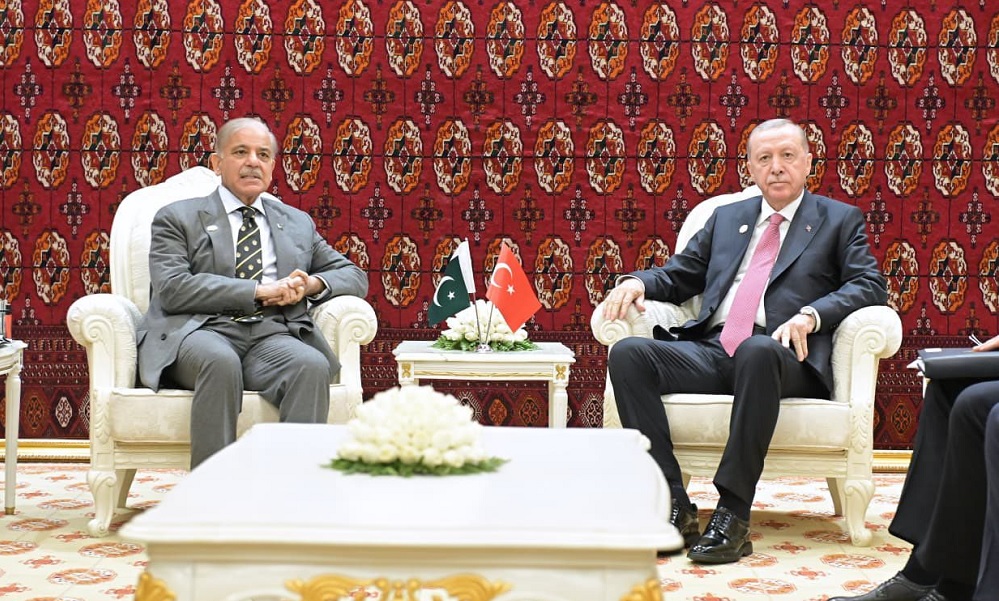
Türkiye stands ready to help sustain the truce between Pakistan and Afghanistan, President Recep Tayyip Erdoğan told Pakistani Prime Minister Shahbaz Sharif during their meeting on Friday on the sidelines of the International Peace and Trust Forum in Ashgabat, Turkmenistan.
According to Türkiye’s Directorate of Communications, Erdogan said Ankara is committed to strengthening its “good relations” with Islamabad and will work to deepen cooperation in energy, trade and investment.
Welcoming the recent extension of the Pakistan-Afghanistan ceasefire, Erdogan noted Ankara’s readiness to contribute to the mechanism established to maintain the absence of conflict.
Pakistani officials have repeatedly claimed that attacks in the country are organized by militants operating from Afghan soil.
The Islamic Emirate, however, denies the allegation, saying it cannot be held responsible for security in Pakistan.
Trade between the two countries was halted on October 11 following airstrikes in Afghanistan and clashes near the Durand Line.
Latest News
US claims 2,000 evacuated Afghans have links to terrorist groups
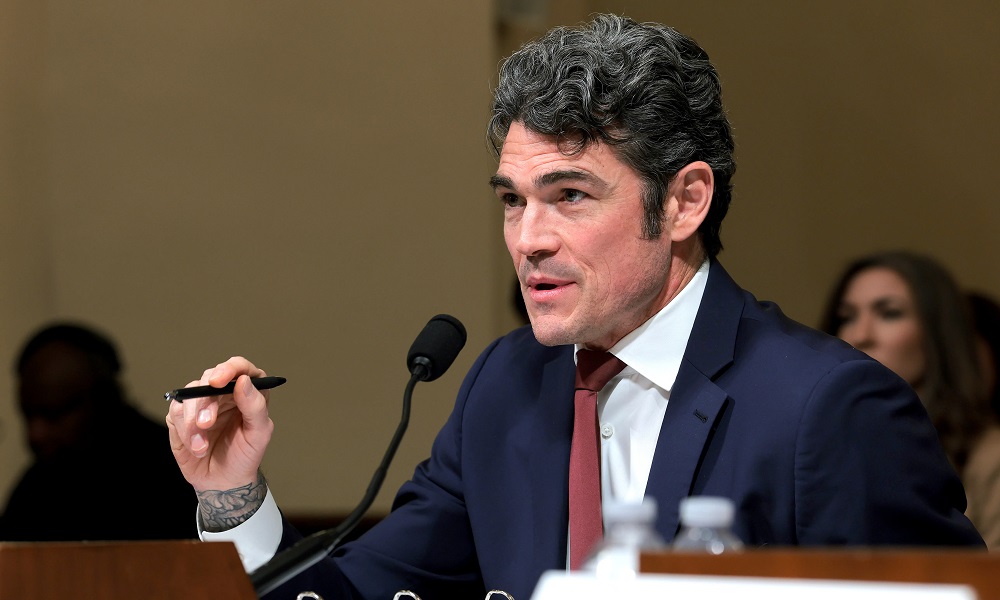
Joe Kent, Director of the U.S. National Counterterrorism Center (NCTC), told a congressional committee that two thousand Afghans evacuated to the United States in 2021 are believed to have links to terrorist organizations.
Kent said these individuals are part of a group of 88,000 Afghans who entered the United States under the “Operation Allies Welcome” program following the collapse of the former Afghan government. According to him, these evacuees “were not properly vetted,” and the screening process was insufficient.
He also referred to the recent attack in Washington, D.C., in which an Afghan evacuee shot two National Guard soldiers, killing one and injuring the other. Kent said the attacker had also arrived in the United States through the Afghan evacuation effort.
The NCTC director added that U.S. security agencies, including the FBI and the Department of Homeland Security, are jointly investigating the two thousand Afghans identified as having suspected links to terrorist organizations. He said that in addition to Afghans, U.S. authorities have also identified 16,000 people from other countries who entered the United States despite having “possible ties” to terrorist groups.
These claims come as debates continue in Washington over how the Afghan evacuation was managed and the security implications that followed.
Latest News
Iran to host regional meeting on Afghanistan next week
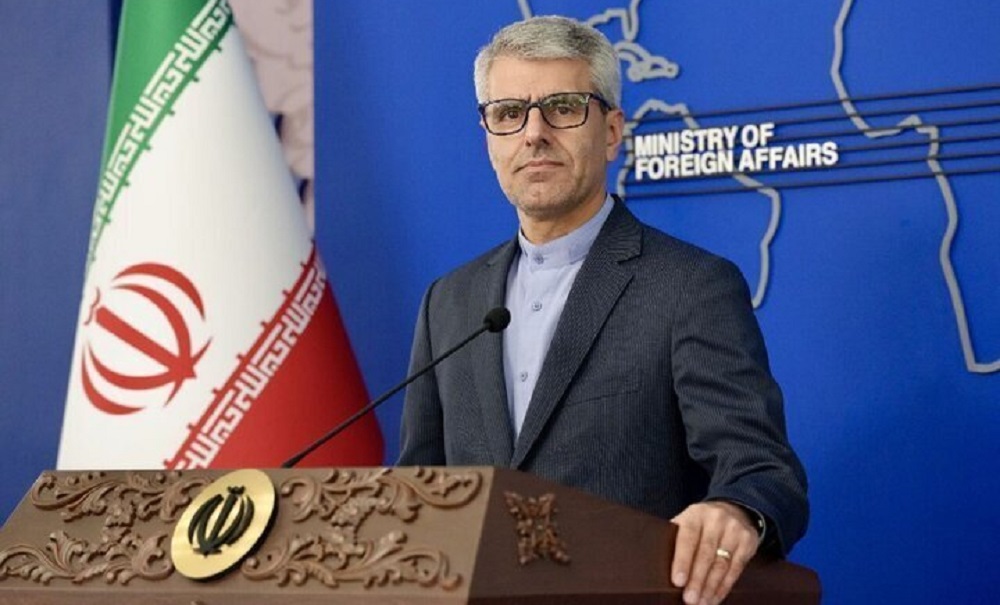
Esmaeil Baqaei, spokesperson for Iran’s Ministry of Foreign Affairs, has announced that Tehran will host a regional meeting on Afghanistan next week.
Referring to Iran’s ongoing consultations with neighboring countries, including Pakistan and Afghanistan, aimed at promoting peace and stability in the region, he said: “The Islamic Republic of Iran attaches fundamental importance to security and stability in our neighboring environment, and in this regard, spares no effort to reduce tensions among regional countries and to strengthen mutual understanding.”
He described the upcoming meeting as the result of consultations held at various levels with neighboring countries and other regional actors, expressing hope that this initiative will play an effective role in enhancing regional cohesion and easing tensions.
According to Baqaei, the regional meeting will take place next week in Tehran, hosted by Iran’s Ministry of Foreign Affairs, and will be attended by special representatives for Afghan affairs from Pakistan, Tajikistan, Uzbekistan, Turkmenistan, China, and Russia.
-
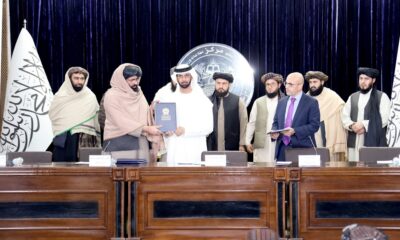
 Business5 days ago
Business5 days agoAfghanistan signs agreement with DP World to bolster ports infrastructure
-

 Sport3 days ago
Sport3 days agoILT20: Desert Vipers edge Gulf Giants in historic super over thriller
-

 4 days ago
4 days agoIran seeks broad expansion of cooperation with Afghanistan
-

 Business4 days ago
Business4 days agoPakistan’s citrus export crisis deepens amid ongoing Afghanistan trade route closure
-

 Latest News4 days ago
Latest News4 days agoDoha Forum: Dialogue between Afghanistan and Pakistan key to regional connectivity
-

 Regional3 days ago
Regional3 days agoSix Pakistani soldiers killed in TTP attack in Kurram District
-

 Business3 days ago
Business3 days agoTrade bodies warn almost 11,000 Afghan transit containers stuck at Karachi port
-

 Latest News4 days ago
Latest News4 days agoUS reviews green cards from 19 countries; Suspends Afghan-related processing






